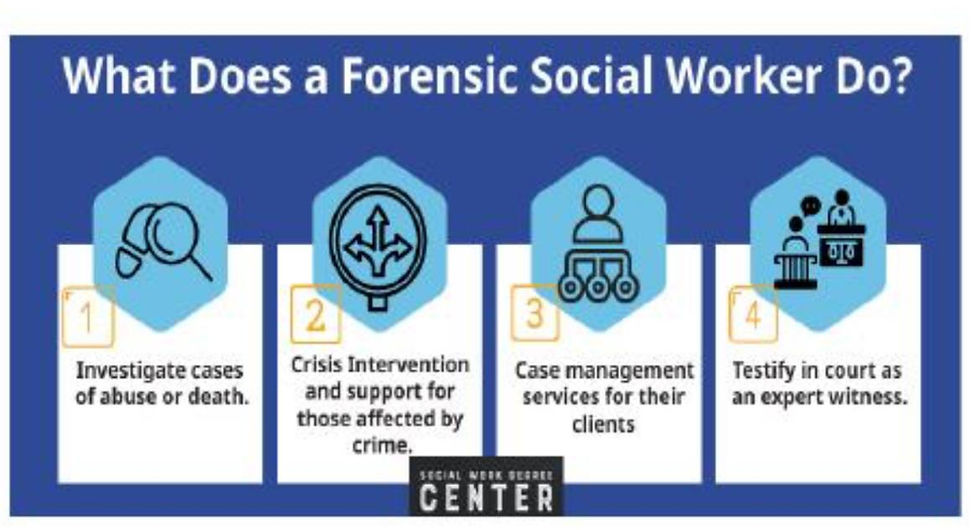All About a Strengths Based Perspective for Social Workers
- carolynwaller
- Feb 2, 2024
- 6 min read
A blog for MSW Professionals
This blog, intended for MSW community members who are social workers, students, educators, and practitioners, seeks to enhance their professional development in the field of social work via the provision of helpful information and tools. Our organization is primarily concerned with the research of the complexity of social work practice, the sharing of knowledge, and the development of innovative methodologies. We are ecstatic to delve into the Strengths-Based Perspective, a paradigm-shifting approach in the area of social work, in this issue. By adopting a viewpoint that prioritizes the assets and capabilities of clients rather than problem-solving methods, this approach offers a fresh and impactful lens through which to see and do social work.
Understanding the Strengths-Based Perspective
Social work that adheres to the Strengths-Based Perspective places emphasis on the resources, capacities, and strengths of clients, as opposed to their shortcomings and challenges. It considers clients to be courageous and resourceful beings who are capable of initiating their own transformation. This methodology is distinguished by its focus on empowerment, which motivates clients to leverage their innate capabilities in order to surmount obstacles(Bryant et al., 2021). Additionally, it encompasses the promotion of cooperation, working in tandem with clients while recognizing and appreciating their life knowledge, and cultivating resilience through the identification and enhancement of individuals' intrinsic resilience. This stands in stark opposition to conventional problem-focused approaches, which frequently fixate on the concerns or shortcomings of individuals, possibly resulting in a disempowering encounter. The strengths-based perspective, on the other hand, fosters a more positive and hopeful outlook, encouraging clients to utilize their own abilities and resources for problem-solving (Graph 1).
Graph 1. Strengths-BasedPerspective in Social Work.
Relevance in Social Work
The strengths-based approach is a fundamental and crucial component of the social work profession. Shifting the focus from negative aspects to good qualities promotes a more favorable rapport between clients and employees, therefore adhering to the profession's fundamental principles of dignity, empowerment, and respect. This methodology improves client engagement by encouraging customers to actively participate in the process via the recognition and appreciation of their abilities. Additionally, it enhances self-efficacy, assisting individuals in developing a sense of assurance in their capacity to bring about transformations in their lives (Dahlberg et al., 2022). In addition, by adopting this methodology, social workers are able tocreate a comprehensive awareness of their clients, transcending their issues and recognizing them as their whole. Fundamentally, the strengths-based viewpoint in social work provides a more robust and efficacious method of client involvement and problem-solving, in addition to being consistent with the profession's fundamental ideals.
Evidence-Based Practice and Strengths-Based Perspective
The success of the strengths-based viewpoint in social work is increasingly supported by a substantial body of research, which strengthens the incorporation of this approach. Numerous scholarly investigations across disciplines such as education, psychology, and social work have repeatedly demonstrated that directing attention toward the strengths of clients may result in improved psychological health, resilience, and general well-being(Zhang et al., 2022). This methodology is substantiated by empirical data that underscores the substantial impact that placing emphasis on an individual's intrinsic capabilities and talents may have on their motivation and involvement in the process of transformation. The strengths-based viewpoint is supported by practical data that substantiates its effectiveness beyond being only a theoretical construct.
The method is corroborated by research derived from an assortment of multidisciplinary sources, which exemplifies the heterogeneous epistemologies prevalent in the domain of social work. The sources encompass a spectrum of approaches, including qualitative research that delves into personal experiences and narratives and quantitative studies that assess results and efficacy (Tracy, 2019). The diverse array of data presented here highlights the adaptability and relevance of the strengths-based approach in many settings and demographics. Social workers may get a complete grasp of the strengths-based approach and its possible implications for practice by consulting an extensive array of research.
Translating Research into Practice
The use of practical social work treatments derived from strengths-based research necessitates the implementation of a number of essential procedures and techniques. To begin with, a thorough assessment of the study is necessary in order to ascertain its pertinence and suitability for specific client populations and environments. Social workers are required to possess the skill of analyzing study outcomes and comprehending how they might be modified to suit the particular requirements and situations of their consumers (O’Hare, 2020). An integral element of this translation pertains to the significance of ongoing education and adjustment. As social work is an ever-evolving discipline, it is vital to remain current on the most recent research and best practices. By engaging in continuous learning, social workers are able to enhance their methodologies and strategies, so guaranteeing that their profession stays efficacious and adaptable to the evolving requirements of their clientele. Additionally, it requires the social worker to be open to adjusting and revising interventions in light of emerging research, client feedback, and their own professional encounters. Integrating research into practice is predicated on this iterative process of learning and adaptation, which guarantees that social work will continue to be a thriving, evidence-based profession.
Working with Marginalized Groups
Diverse and marginalized communities frequently face a distinct array of obstacles, such as historical persecution, social shame, and structural inequities. These challenges may materialize in the form of restricted resource availability, prejudiced treatment, and underrepresentation in the dominant societal sphere(Grzanka& Cole, 2021). Feelings of powerlessness and a limited capacity to identify and exploit one's own abilities and resources are prevalent in such circumstances. In these situations, the strengths-based approach to social work is very beneficial. By directing attention toward the intrinsic capacities, resilience, and strengths of both communities and people, it mitigates the detrimental consequences of marginalization. By granting individuals the validation of their experiences and acknowledging their capacity to surmount challenges, this methodology redirects attention away from shortcomings and onto their capabilities and prospects.
Case Study 1: Application in a Community Setting
A community organization situated in an urban neighborhood that is populated mainly by immigrants and refugees encounters obstacles like cultural isolation, unemployment, and language hurdles in a hypothetical situation. An effort in social work that embraces a strengths-based approach starts with the identification of the group's pre-existing community networks, cultural expertise, and skill sets. In this scenario, social workers conduct community gatherings at which participants impart their knowledge and abilities. They uncover significant aptitudes such as proficiency in many languages, expertise in regional cuisine, and manual dexterity. Social workers assist in the establishment of a local market and a cultural exchange program in order to promote and appreciate these abilities in collaboration with the community. Increased community participation, enhanced self-esteem among members, and a fortified sense of cultural identity are the results of this strategy. Moreover, it facilitates linkages with the broader community, so contributing to the dismantling of isolationary obstacles. This case study exemplifies how the strengths-based viewpoint may empower underprivileged groups by redefining obstacles as chances for communal development and inclusion.
Case Study 2:Application in Group Work
In another hypothetical situation, a cohort of adolescents attending a nearby secondary institution confronts challenges such as diminished self-worth and peer influence but are united for a collaborative undertaking. Social workers adopt a strengths-based approach, which entails directing attention toward the distinct abilities and favorable qualities of each individual. The group sessions comprise exercises that offer every adolescent the opportunity to exhibit their areas of proficiency, whether it is in academia, the arts, athletics, or communication. As the sessions advance, the adolescents develop an awareness of and admiration for both their individual and mutual strengths. This methodology not only enhances their sense of self-worth but also cultivates a nurturing social circle among peers. The group project exemplifies the efficacy of directing attention towards favorable qualities in order to tackle prevalent concerns among teenagers, therefore fostering an environment of reciprocal regard and self-esteem.
Conclusion
The relevance of the strengths-based viewpoint in social work has been emphasized throughout this blog, with an emphasis on its capacity to improve the profession. This methodology, which is based on the acknowledgment of the customers' intrinsic capabilities and assets, is diametrically opposed to conventional problem-oriented approaches. Research has demonstrated that it is most efficacious when applied to underprivileged and varied communities, providing them with a more optimistic and powerful perspective. The given case studies illustrate the pragmatic implementation and favorable results of this viewpoint across a range of contexts, including teenage group work and community organizations. These instances highlight the profound impact that capitalizing on one's abilities may have in cultivating resilience, involvement, and constructive transformation. Beyond being a method, the strengths-based approach is a way of thinking that is consistent with the fundamental principles of social work. Its basic tenets of dignity, empowerment, and respect render it an essential methodology within the discipline.
References
Bryant, J., Bolt, R., Botfield, J. R., Martin, K., Doyle, M., Murphy, D., Graham, S., Newman, C. E., Bell, S., Treloar, C., Browne, A. J., & Aggleton, P. (2021). Beyond deficit: ‘Strengths‐based approaches’ in indigenous health research. Sociology of Health and Illness, 43(6), 1405–1421.
Dahlberg, K., Bylund, A., Stenberg, E., & Jaensson, M. (2022). An endeavor for change and self-efficacy in transition: Patient perspectives on postoperative recovery after bariatric surgery–a qualitative study. International Journal of Qualitative Studies on Health and Well-being, 17(1).
Grzanka, P. R., & Cole, E. R. (2021). An argument for bad psychology: Disciplinary disruption, public engagement, and social transformation. American Psychologist, 76(8), 1334–1345.
O'Hare, T. (2020). Evidence-based practices for social workers: An interdisciplinary approach. Oxford University Press, USA.
Tracy, S. J. (2019). Qualitative research methods: Collecting evidence, crafting analysis, communicating impact. John Wiley & Sons.
Zhang, S., Deng, X., Zhao, X., Xuebin, C., & Hou, J. (2022). The relationship between postgraduates’ emotional intelligence and Well-Being: The chain mediating effect of social support and psychological resilience. Frontiers in Psychology, 13.



Comments